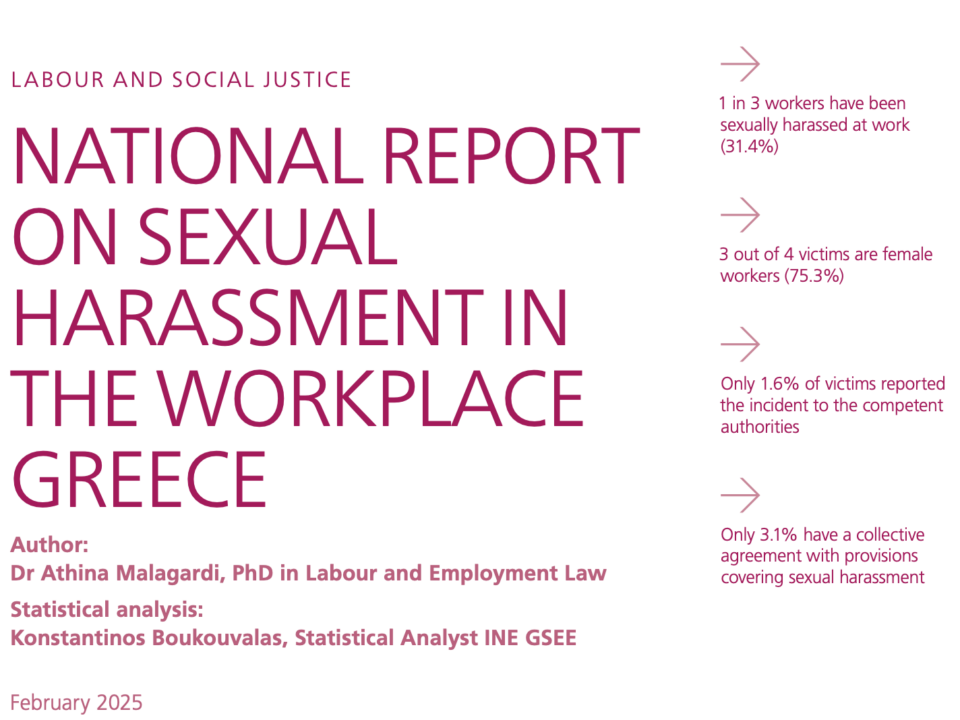The INE-GSEE Labour Institute published the 2023 Annual Report on the Greek Economy and Employment.
According to the report, the Greek economy proved to be resistant to the inflation crisis, since in 2022 it recorded growth rates higher than the Eurozone average. It returned to the growth trend of the 2016-2019 period, covering the gap caused by the pandemic. The main driver of economic growth was private consumption, while the increase in imports outweighed any benefits from the boost in investment and exports. However, consumption momentum is declining and investment, although increased, remains almost nine percentage points below the Eurozone average in terms of GDP.
Regarding employment, the main conclusions are summarized as follows:
· The labour market continues the momentum it has shown since the post-pandemic recovery in 2021, and in the first quarter of 2023 it is moving above its long-term trend in terms of both unemployment reduction and employment growth.
· Despite the rapid recovery, Greece has the second highest unemployment rate in Europe. Accordingly, it records the lowest employment rate for young people under 25 and the second lowest employment rate for both 20-64-year-olds and women among the EU-27 member states.
· The quality of work in Greece is the lowest among the EU-27 member countries. Greece scores the worst in characteristics such as working time and work-life balance, and among the lowest performers in collective representation, career development and income quality. This also demonstrates the limits of a production model based on jobs of low productivity, low added value, low job stability and high working hours.
· All the findings of social sustainability indicators in Greece show that inequality is decreasing, but is still high.
· Although the workforce in Greece has high formal qualifications, at the same time there is a poor orientation of the domestic labour market towards Continuing Vocational Training (CVET).
· There is a significant delay in the digital transformation of Greece and this is highlighted by the low demand for ICT specialists, as Greece appears to be lagging behind the rest of the EU member states. At the same time, the unemployment rate in this occupational group is consistently higher than average unemployment rate, when it is at the lowest levels in the EU.
For the main conclusions click here (available only in Greek)
For the full text of the Annual Report, click here (available only in Greek)
Source: INE-GSEE Labour Institute https://www.inegsee.gr/ekdosi/etisia-ekthesi-2023-ine-gsee-i-elliniki-ikonomia-ke-i-apascholisi/




